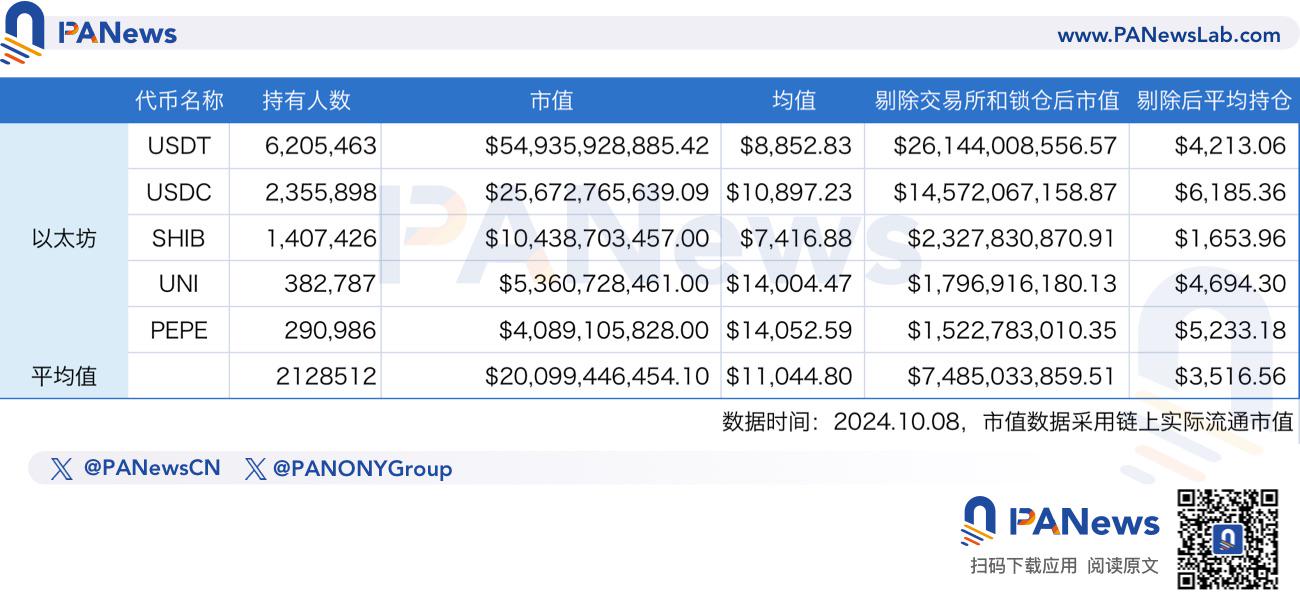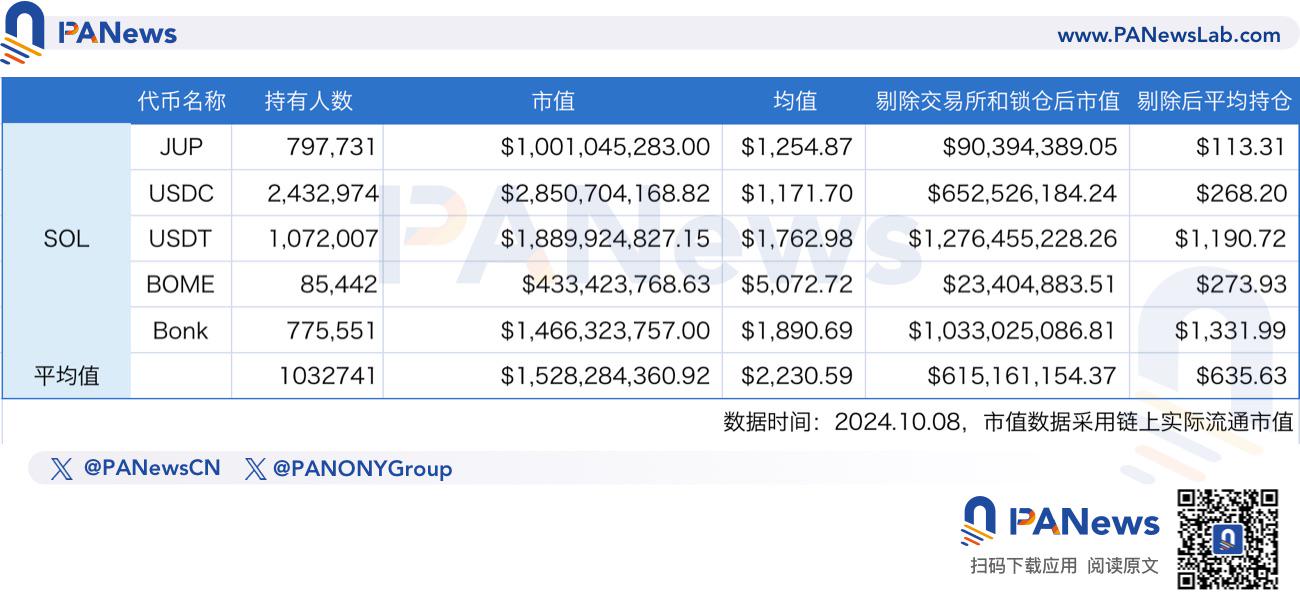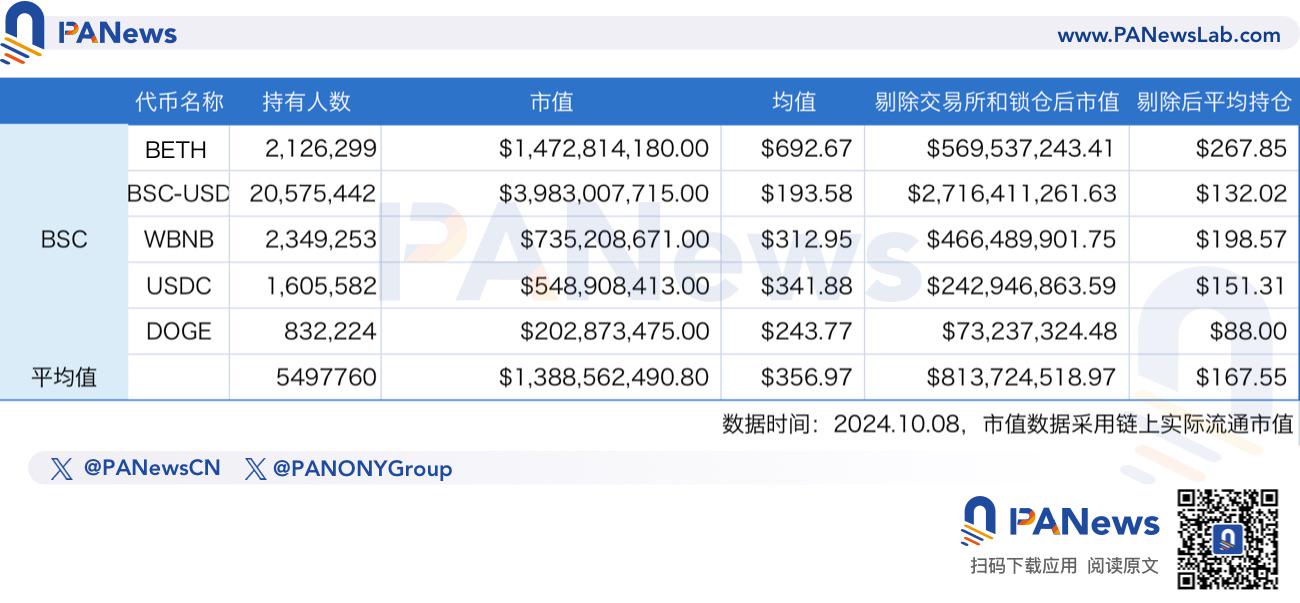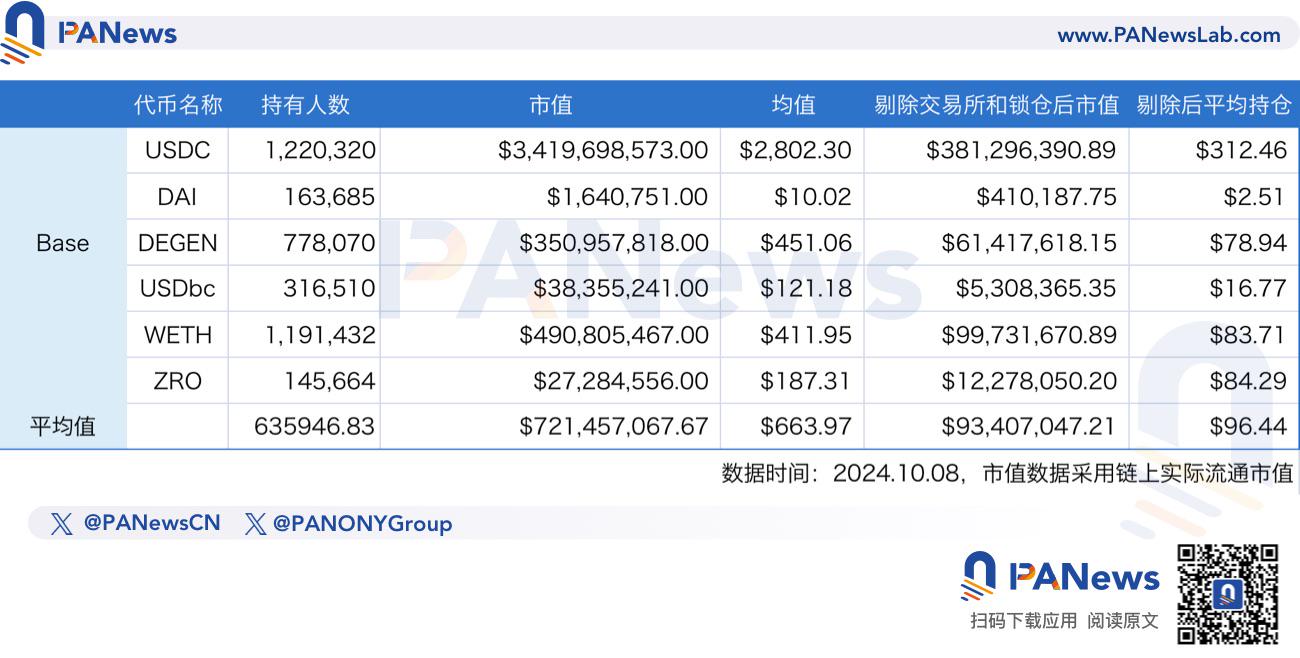Original author: Frank, PANews
Since the mini-games in the Telegram ecosystem became popular, the number of users in the crypto space has surged. The number of users of previous star projects seems insignificant in front of the tens of millions or even hundreds of millions of users of TG mini-games. But we seem to have overlooked a problem, the discussion about the value of users. Ethereum has only 400,000 to 500,000 daily active users, but it is still the second largest public chain in terms of market value, while TON, which easily exceeds 2 million daily active users, can only rank around tenth? Is it the markets misjudgment of value or is there indeed a huge gap in user value between these public chains? PANews analyzed the true value of users of each public chain, trying to uncover the mystery of the user value of the public chain.
The main research methods are as follows: In order to more realistically restore the user value on each public chain, PANews calculated some tokens of several popular public chains, such as Solana, Ethereum, TON, Sui, Base, BSC, etc. Since there has been no ready-made indicator to show the user value of the public chain, we obtained the average value by dividing the token market value by the number of coin holders, and compared this average value, which is the average coin value of each address of these popular tokens. In addition, in order to be closer to the actual situation, the exchange address, team coin address, locked address and other large holders in the coin holding address are removed for calculation. Of course, this method may not be rigorous, because the average value never represents the majority, and there is a virtual market value in the market value, but it has a great reference significance for the value ranking of public chain users.
In addition, PANews also divides the daily transaction amount of each public chain by the number of daily transactions, and calculates the average size of each transaction, which can also reflect the user value of the chain to a certain extent.
Ethereum: The average deposit of each address is $3,516, and a single transaction is $1,160, a gathering place for big players

Ethereum is still in the leading position in various data. On Ethereum, we selected USDT, USDC, SHIB, UNI, PEPE and other currencies as the analysis objects, according to the average value after excluding the addresses of large accounts. The average address holding amount of these tokens reached about 3,500 US dollars, which is much higher than other public chains, about 6 times that of Solana chain, and the market value difference between the two is about 5 times. From this perspective, Solanas market value seems to be a bit overestimated? In terms of the scale of a single transaction, the scale of a single transaction of Ethereum reached 1,160 US dollars, which is also much higher than other public chains. From this point of view, Ethereum is still the only choice for large accounts.
Solana: Average deposit of addresses is $635, average single transaction is $17, and the main theme is still the earth dog
 Solana has now become the most representative public chain in the industry, and its various indicators can basically be used as a standard for comparison. However, during the research, PANews found that Solanas governance token SOL, unexpectedly, could not find out the number of holders of the token anywhere. Therefore, when conducting research, we can only take some other more representative tokens on the Solana chain as data sources, such as JUP, USDC, USDT, BOME, Bonk, etc.
Solana has now become the most representative public chain in the industry, and its various indicators can basically be used as a standard for comparison. However, during the research, PANews found that Solanas governance token SOL, unexpectedly, could not find out the number of holders of the token anywhere. Therefore, when conducting research, we can only take some other more representative tokens on the Solana chain as data sources, such as JUP, USDC, USDT, BOME, Bonk, etc.
After calculation, it can be seen that after directly dividing the market value of these tokens and the addresses holding the tokens, the average value of the tokens held by each address is about US$2,240, which is second only to Ethereum among all public chains. However, after excluding the addresses of these tokens such as locked positions and exchanges, the average holding amount of the addresses drops to about US$635.
In addition, when comparing the holding values of these tokens, it can be seen that the average amount of user addresses holding MEME coins is significantly higher than that of stablecoin accounts. This phenomenon is the opposite in Ethereum, which may also indicate that Ethereum users may prefer DeFi, such as the income method of stablecoin interest. Solana users prefer Chongtugou. According to Hello Moon data, in the past month, more than 86 million users held 0 SOL in their wallets, about 15.5 million users held less than 1 SOL, and about 1.5 million users held less than 10 SOL.
According to data from October 8, the Solana chain generated about 250 million transactions, of which about 26.2% were non-voting transactions. The total transaction volume on that day was about 1.15 billion US dollars, with an average transaction size of 17.4 US dollars. This transaction volume seems to be dominated by MEME coin transactions.
Arbitrum: The average deposit of each address is $487, and a single transaction is $282. It is the L2 that inherits the most Ethereum genes.
Arbitrum is one of the networks with the best data performance among the current Ethereum L2. Judging from the results of the data, Arbitrum does seem to carry many high-value users of Ethereum. After excluding large accounts such as exchanges, the average address holding amount of Arbitrum still reached US$487, only lower than Ethereum and Solana. However, taking USDC as an example, half of the USDC on Arbitrum is deposited in Hyperliquid, and several other currencies are also held by large accounts. At the same time, the tokens with higher market value on Arbitrum are basically stablecoins or pledged tokens such as BTC and ETH, which is also similar to the user holding characteristics of Ethereum. From this perspective, Arbitrum can be said to be the L2 that inherits the most Ethereum genes. The average transaction size of Arbitrum is US$282, only lower than Ethereum.
Sui: The average deposit of each address is $271, and the single transaction is $11.4. Is the new force catching up with Solana?

Recently, there have been rumors that Sui will become Solanas strongest competitor. Judging from the on-chain data, Suis data does perform well. On Sui, we selected several tokens with higher market capitalizations, such as SUI, wUSDC, USDT, CETUS, and SCA, for comparison. On Sui, these tokens are obviously more dispersed, so wUSDC and USDT are almost not excluded because of their high proportion. Overall, the average address holding amount of these tokens on Sui is $271, which is higher than TON and about 1 times that of Solana.
However, in terms of transaction size, data from October 8 showed that Sui’s average transaction size was $1.8, the lowest among all public chains. However, this data may be due to the abnormal surge in Sui’s recent transaction volume, which exceeded 100 million. It is not known whether it was caused by robots entering the market to increase volume or another spam mining program similar to SPAM. If calculated according to the data on October 3, the average transaction size per transaction is about $11.47, which is slightly lower than Solana, but much higher than TON (this data may be closer to Sui’s daily level).
BSC: Average deposit of each address is $167, single transaction is $237, user profile is similar to Ethereum

In comparison, BSCs data level is medium. Unlike Solana and Sui, BSCs attributes are more like Ethereum. On BSC, we selected 5 tokens including BETH, BSC-USD, WBNB, USDC, and DOGE for analysis. The average holding amount of their addresses is about US$167 (after excluding large holders such as exchanges and locked positions), while the average transaction size of BSC is more impressive, with an average single transaction size of about US$237. This data is second only to Ethereum and higher than other public chains.
TON: The average deposit of each address is $106, and the single transaction is $3.3. The money collectors failed to bring in funds.
Driven by several popular mini-games such as Notcoin, Hamster Kombat, and DOGS, TON has become one of the most active public chains. However, the real popularity of TON and the markets recognition seem to have always been in a vague state. According to Cointelegraph, on October 7, Web3 anti-fraud solution Scam Sniffer shared a screenshot of the TON-based hacking software announcing its closure. The hacker said that there are not enough crypto whales in the community, which is not good for its business.
On TON, we selected several tokens such as DOGS, NOT, TON, USDT, HMSTR, and CATI for analysis. The results of these tokens show that the average address amount is only $106, which is at the bottom of the analyzed public chains. In terms of transaction scale, TONs transaction scale is only $3.38, which is also at a low level. Perhaps, from this perspective, the TON ecosystem is still in a state of only excitement but no hot money.
Base: The average deposit of the address is $96, and a single transaction is $138. The funds are mainly deposited in institutions such as exchanges.

The average holding value of Base users is about $96, while this value was $663 before excluding large holders. This change shows that as a Layer 2 network based on Coinbase, most of the funds on the Base chain are basically deposited in institutions such as exchanges. The scale of funds held by retail investors on Base is much smaller. In addition, the scale of a single transaction on Base is around $138, which is also a high-value transaction level.
In summary, by comparing the user value on each chain, we can find the attributes of different chains. For example, the emerging MEME chains with high popularity, such as Solana and Sui, are characterized by small single transaction scale, small capital holdings in a single address, but large number of transactions. The old public chains represented by Ethereum and L2 are more favored by big investors, but they obviously prefer investment forms such as asset pledge. Among them, the performance of the TON ecosystem is somewhat out of touch with the popularity of Telegram games from all angles, but this model of attracting users first is just the beginning, and whether it can successfully break through remains to be verified in the future.










